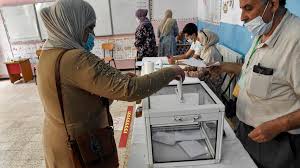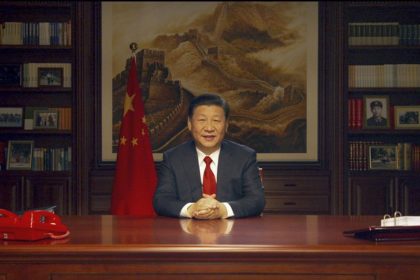In a significant moment for Algeria’s political landscape, over 24.3 million Algerians are called to cast their ballots this Saturday, electing their next president from three diverse candidates. The election marks a pivotal moment in the North African nation’s ongoing political evolution, with promises of economic reform, youth development, and anti-corruption measures taking center stage during the campaign.
The candidates in the race are opposition leader Youcef Aouchiche of the Front of Socialist Forces, Abdelaâli Hassani Cherif from the Movement of Society for Peace, and incumbent President Abdelmadjid Tebboune, who is running as an independent candidate. Tebboune, who has held office since 2019, is widely anticipated to secure a second five-year term, buoyed by support from several influential political factions.
Campaigning Across Africa’s Largest Nation
For the past three weeks, the presidential hopefuls have traversed the vast expanse of Africa’s largest country, engaging with voters and presenting their visions for Algeria’s future. The key issues dominating their campaigns include economic development, improved living conditions for the nation’s youth, and a robust fight against corruption. The term “Isaaba,” referring to a powerful elite that critics claim has long held sway over Algerian politics, has become a focal point of many candidates’ pledges for reform.
Tebboune, although officially running as an independent, enjoys the backing of three major political parties, including the influential National Liberation Front (FLN), the former ruling party under the long-serving president Abdelaziz Bouteflika. Despite his independent status, Tebboune’s detractors have criticized his reliance on these traditional powerhouses, accusing him of maintaining the status quo rather than delivering on promises of real change.
Low Turnout Anticipated as Key Indicator
Political analysts are closely watching voter turnout as a critical measure of public engagement in this election. Many believe that the incumbent president is likely to win, but they argue that the turnout will be a telling indicator of the nation’s political health. Algeria has seen a wave of disillusionment and protests in recent years, driven by widespread dissatisfaction with political corruption and economic stagnation.
The election, originally scheduled for December, was brought forward, a move that some of Tebboune’s opponents claim was designed to favor the sitting president. The timing of the election has stirred debate, with critics asserting that the early election date did not give opposition candidates enough time to organize and mount a serious challenge.
For many Algerians, however, the central issue remains the economy. With high youth unemployment and stagnant wages, calls for economic reform have resonated deeply, especially among the younger population. Many are hopeful that this election will bring about the long-needed changes to lift Algeria out of its current economic malaise.
Corruption at the Forefront
Corruption, particularly among Algeria’s political elite, has been a significant theme throughout the campaign. Tebboune’s rivals have been quick to highlight his association with the ruling establishment, despite his claims of independence. Aouchiche and Cherif have both pledged to dismantle the Isaaba, which they argue has stifled economic growth and stymied political reform for decades.
Tebboune, for his part, has positioned himself as a reformer, touting his efforts to tackle corruption during his first term. He has pointed to several high-profile anti-corruption cases and the imprisonment of former government officials as evidence of his commitment to change. Yet, for many, the question remains whether Tebboune represents a genuine break from the past or a continuation of the same political system under new branding.
The Future of Algeria’s Youth
Another significant focus of the campaign has been youth development. Algeria’s large youth population, many of whom face unemployment and limited economic opportunities, represents both a challenge and an opportunity for the next president. Both opposition candidates have made youth development a cornerstone of their platforms, promising to create jobs, invest in education, and provide better support for young entrepreneurs.
Tebboune has also sought to appeal to younger voters, highlighting government programs aimed at boosting employment and providing social support. However, skepticism remains high, with many young Algerians expressing doubt that the political system will deliver the meaningful change they seek.
What’s at Stake
As Algeria heads to the polls, the nation stands at a crossroads. While Tebboune is widely expected to secure a second term, the broader question is whether the election will lead to genuine political reform or further entrench the existing power structures. Voter turnout will serve as a barometer of public sentiment, and the eventual winner will face the enormous task of addressing the economic and social challenges that continue to weigh heavily on the nation.
With promises of reform and a desire for change driving the electorate, today’s vote could mark the beginning of a new chapter for Algeria – or simply reinforce the political status quo.




